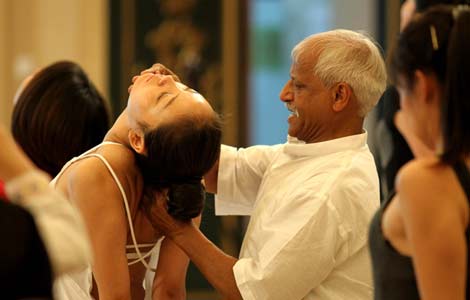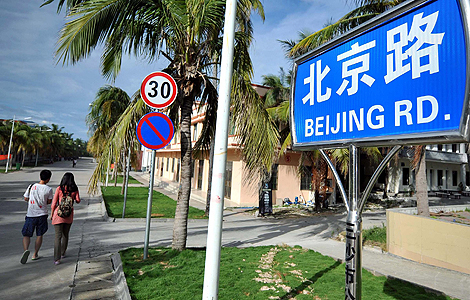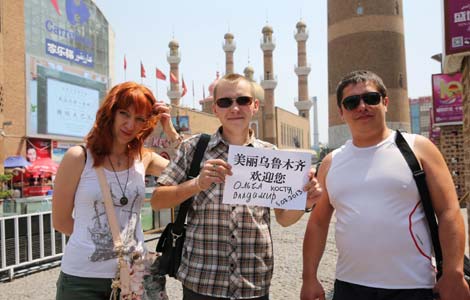Shenzhen Red Cross denies organ claim
Updated: 2013-07-10 03:16
By ZHENG CAIXIONG in Guangzhou and SHAN JUAN in Beijing (China Daily)
|
||||||||
Branch accused of taking cash for donation help
The Shenzhen branch of the Red Cross Society of China has denied a news report on Monday alleging it asked for donations of 100,000 yuan ($16,100) from recipient hospitals for each organ donation the society helped facilitate.
The Shenzhen branch has never participated in the process of organ donations, it said in a statement on Tuesday.
"The branch will inform hospitals when it is informed of potential organ donors, and it is the hospitals' responsibility to send expert groups to assess the donor situation, conduct organ removals and transplantation surgeries," it said.
The Shenzhen Red Cross said it received only 150,000 yuan from the General Hospital of Guangzhou Military Command in Guangzhou, Guangdong province, after the branch cooperated with the hospital in 25 organ donation cases over the past three years.
"But the money received was used to help with organ donors' medical bills before death, and the utilization of the money is always transparent," it added.
Li Jindong, deputy director of the organ donation office under the Guangdong Red Cross branch, said: "The Red Cross Society in Guangdong province does launch some lawful donation drives for the poor family members of deceased organ donors, but we never ask for donations for providing organs".
Zhao Lizhen, director of the society's Shenzhen branch, said the city was unable to perform any organ transplants for six years before two local hospitals were qualified to conduct transplants in July 2011.
"Shenzhen now lacks professional donor assessment groups for organ transplants, so the Shenzhen Red Cross has very close contact with qualified hospitals in Guangzhou and other regions on the mainland," Zhao told local media.
She denied that her branch acts as a third party for potential organ donors.
Many of Shenzhen's organ donations come from its migrant worker population.
Li from the Guangdong Red Cross said organs donated are allocated 100 percent via the China Organ Transplant Response System software, which does not allow human intervention.
"Patients on top of the system's waiting list who are in the most urgent need would get matched with organs regardless of whether they are rich or poor," he said.
Wang Haibo, who heads the system, did not give a direct response.
"We need to do further data analysis to substantiate the allegation," he told China Daily.

 Breathe deep, this is the real thing
Breathe deep, this is the real thing
 Families of crash victims in SF
Families of crash victims in SF
 Rainstorms cause severe flooding and landslides
Rainstorms cause severe flooding and landslides
 Coal burning in China's north can shorten lives
Coal burning in China's north can shorten lives
 Some solar companies see brighter first half
Some solar companies see brighter first half
 Thousands flock to Texas Capitol over abortion
Thousands flock to Texas Capitol over abortion
 China's youngest city glistens under palm trees
China's youngest city glistens under palm trees
 Xinjiang tourism recovering
Xinjiang tourism recovering
Most Viewed
Editor's Picks

|

|

|

|

|

|
Today's Top News
China, US hold talks on cybersecurity
Shenzhen Red Cross denies organ claim
Security in cyberspace 'still major problem'
Rainstorms cause severe flooding and landslides
Japan tags China as 'security threat'
Honesty is a challenge for CPC
Snowden hasn't accepted asylum
Teenage girls were best friends
US Weekly

|

|







